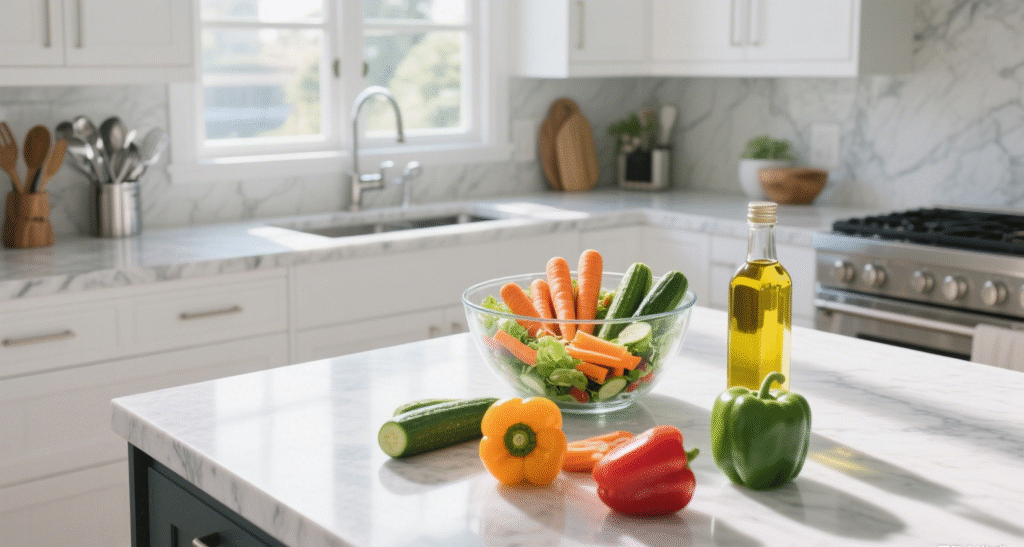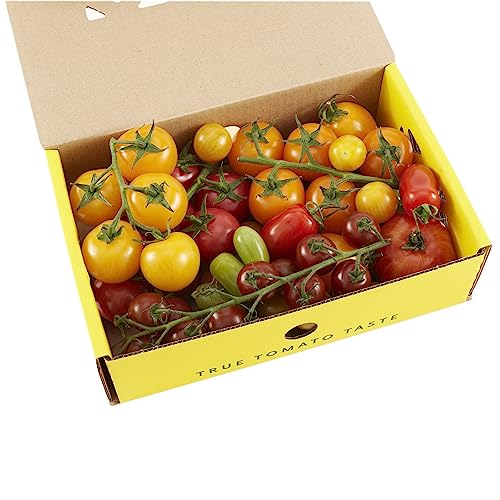This post may contain affiliate links which means we may receive a commission at no cost to you, if you make a purchase through a link. Please see our full disclosure for further information.
Want to eat healthier? Vegetables are a great way to get important nutrients. This list will show you the top 10 healthiest vegetables to add to your diet. These vegetables are packed with vitamins, minerals, and other good things for your body.
Why Eat More Vegetables?
Vegetables give you the nutrients you need without a lot of carbs and sugar. Potassium and magnesium are two important minerals you can get from vegetables. You also get sodium when you add salt to your food.
Many of these vegetables help your liver clean out toxins. They have special compounds that help your body get rid of junk.
The Top 10 Vegetables
Here are the top 10 vegetables you should eat, starting with number 10:
10. Garlic
Garlic has been used for its health benefits for thousands of years. Many people eat more garlic when they want to boost their immune system. Garlic contains a compound called allicin, which gives it its smell, taste, and health benefits. Allicin is just one of many sulfur compounds in garlic. These sulfur compounds can help your body detoxify.
Another compound in garlic is cysteine. Cysteine turns into glutathione, which is a powerful antioxidant. Antioxidants help clean and protect your body.
Garlic is also full of vitamins and minerals. You can eat it raw or cooked. Raw garlic has the most active allicin.
Important Note: Garlic can cause body odor.
9. Onions
Onions are in the same family as garlic. They also contain sulfur and cysteine. Like garlic, onions have lots of vitamins and minerals.
Onions have about 7.5 grams of carbs per 100 grams. If you are watching your carb intake, be mindful of how much you eat. A medium onion has around 100 grams of carbs, so it’s okay to eat one a day.
If you have small intestine bacterial overgrowth (SIBO), you might have trouble digesting onions and garlic. SIBO is when bacteria grow in the wrong place in your gut. Onions and garlic contain FODMAPs, which can cause gas and bloating if you have SIBO. Soaking onions and garlic may help reduce these effects.
8. Brussels Sprouts
Brussels sprouts are in the cruciferous family, which means they are good for your liver. They contain a compound called Kaempferol, which is an antioxidant and anti-inflammatory. It may even help fight cancer.
7. Tomatoes
Tomatoes are easy to cook with, eat raw, or have as a snack. They have vitamins, minerals, and antioxidants like lycopene and lutein. These antioxidants have been studied for their health benefits.
The Health Benefits of Tomatoes
When choosing vegetables, think about:
- Availability: Can you buy them in most places?
- Affordability: Are they cheap?
- Taste: Do you like them?
- The Dirty Dozen and Clean Fifteen: How much pesticide do they contain?
The Clean Fifteen are vegetables with the least amount of pesticides. These include avocado, onion, eggplant, and asparagus.
The Dirty Dozen are vegetables with the most pesticides. These include spinach, kale, tomatoes, celery, and potatoes. If you buy these, try to buy organic.
6. Cabbage
Cabbage is a cheap and healthy vegetable. It is part of the cruciferous family, so it helps your liver. Cabbage is also full of vitamins and minerals, especially vitamin C. You can eat it raw or cooked.
Cabbage is good for your gut bacteria. It contains fiber, which feeds the good bacteria in your gut. You can also ferment cabbage to make sauerkraut. Fermented vegetables have probiotics, which are good for your gut.
Probiotics are like seeds for your gut. They need a healthy place to grow. To create a healthy gut, eat whole foods, cut out sugar, increase fiber, and eat fermented foods.
5. Bell Peppers
Bell peppers are full of vitamin C and low in carbs. You can eat them raw or cooked. Add them to salads, stir-fries, or eat them as a snack.
Grow New Pepper Plants
4. Cauliflower
Cauliflower has lots of vitamins, minerals, and potassium. It is part of the cruciferous family, so it helps your liver. Cauliflower is low in carbs, which makes it popular for low-carb diets. You can mash it, rice it, steam it, or bake it.
Be careful with products that say “made with cauliflower.” They may still contain a lot of carbs from other ingredients.
Honorable Mentions
Here are some other healthy vegetables:
- Mushrooms
- Green beans
- Celery
- Asparagus
- Parsley
- Eggplant
- Zucchini
- Radishes
- Spinach
- Kale
- Swiss chard
- Collard greens
Remember to buy organic versions of celery, spinach, and kale if possible, as they tend to have more pesticides.
3. Broccoli
Broccoli has tons of nutrients and is part of the cruciferous family. It is low in carbs and easy to cook. You can steam it or grill it.
It’s important to remember that food supports the body; it does not treat conditions. When you give your body the nutrients it needs, it can return to balance and get healthier.
2. Lettuce
There are many kinds of lettuce, such as romaine, green leaf, red leaf, and spring mix. Lettuce has plenty of nutrients and fiber. It is a great filler for salads and snacks.
1. Avocado
Avocado may be the most perfect plant creation ever. It is low in carbs and high in healthy fats and potassium. Avocados are filling and versatile. You can add them to omelets, chili, or eat them plain. You can also make guacamole. Avocados are also on the Clean Fifteen list, so you don’t always need to buy organic.
Eat More Vegetables Today!
Adding these top 10 vegetables to your diet is a great way to improve your health. They provide important nutrients and help your body stay in balance. Try incorporating a variety of these vegetables into your meals every day.
Uncover further inspiration in our blog.
















